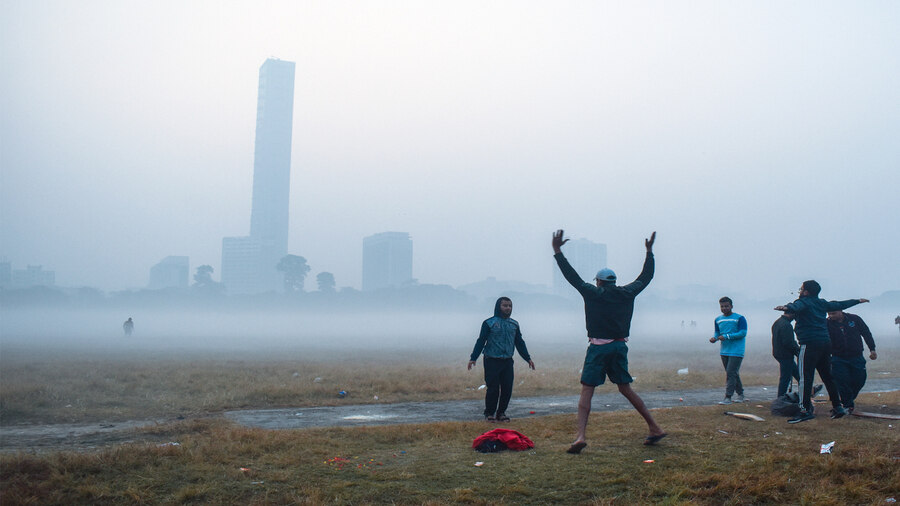Severe to very poor: Such was the air quality in all but one air monitoring station in Kolkata and Howrah between Sunday night and Monday morning.
The air quality recorded at Ghusuri in Howrah was severe, the worst grade in the National Air Quality Index, from around 10.30pm on Sunday to 3am on Monday. The air quality slightly improved to ‘very poor’, the second worst grade and remained so till past 9am on Monday. In Kolkata, six out of the seven monitoring stations recorded very poor air quality for several hours between Sunday night and Monday morning.
In at least four of these places Ballygunge, Jadavpur, Rabindra Bharati University (BT Road) and the Rabindra Sarobar, air quality remained very poor till around 9am on Tuesday. A number of people who are out for a morning walk or jog breathed foul air.
According to the National Air Quality Index, ‘severe’ air quality “affects healthy peopleand seriously impacts those with existing diseases” and ‘very poor’ air quality can cause “respiratory illness on prolonged exposure”.
Ajoy Sarkar, a pulmonologist and critical care expert at the Peerless Hospital, said that some of the common health impacts of the poor air quality are nasal congestion, runny nose, pharyngitis, laryngitis and voice change. In some people, it can also cause coughing. In worse cases, breathing poor air can lead to breathlessness, but it generally happens to those with some pre-existing conditions, said Sarkar.
Every winter, the air quality in Kolkata and Howrah keeps falling. Environmental scientists said that the drop in air quality is because of changes in the weather conditions as well human activities. Burning of solid waste is common during winter and adds to the drop in air quality. During winter, the air above the ground remains cool and does not rise up as much as it does when the temperatures remain higher.
As the cold air remains trapped closer to the ground, the pollutants too remain trapped closer to the ground. “This is the air that humans breathe,” said Abhijit Chatterjee, an associate professor with the environmental science section at the Bose Institute. The temperatures drop by the time the fires are lit. The air closer to the ground remains cold and does not rise up. The pollutants emitted during the burning of waste remain trapped through the night and much of the morning,” said Chatterjee.
The air warms up only after there is bright sunlight for some hours. The pollutants too disperse with the air warming up. “I have already noticed people burning solid waste during evenings and nights.
Pollutants are emitted during the summer and monsoon too but the rain washes away the particles while warm temperatures and higher wind speeds during summer help the particles disperse, reasons why air quality is not a concern during these seasons.
A senior official of the Howrah Municipal Corporation said they had commissioned a survey to find out the sources of the air pollution. “Ghusuri is a very congested and industrialised zone. Small units run from many houses. We will be able to take mitigating actions once we have the results of the survey with us,” said the official.
The primary pollutant in Kolkata and Howrah is PM2.5, which are very tiny particles that can invade the bloodstream and can travel to any organ. The particles can then trigger a number of health issues.
